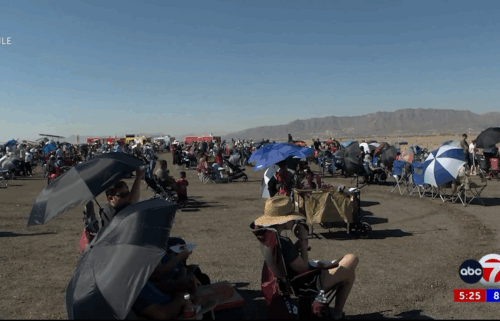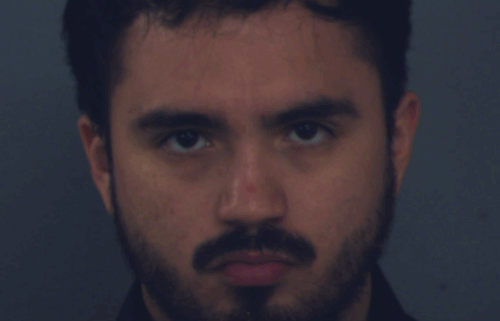Lee plays defense over criticism that his Meadows texts show he obscured what he knew about efforts to overturn 2020 election
CNN
By Annie Grayer and Lauren Fox, CNN
Republican Sen. Mike Lee is defending himself against criticism that he obscured what he knew about efforts to overturn the 2020 election in light of newly-revealed text messages showing he communicated for weeks about the effort with then-White House chief of staff Mark Meadows.
The texts, first reported by CNN last week, show a series of communications between Lee and Meadows beginning just days after the election in which Lee initially expressed support for challenging the election results. In early December 2020, Lee began texting Meadows about the idea that states could submit alternate slates of pro-Donald Trump electors to Congress on January 6.
But in statements since the insurrection, including comments he made on the Senate floor that day, Lee has given the impression that he was simply monitoring activity from states, as opposed to promoting the idea of separate electors to Meadows.
“There are, of course, rare instances, instances in which multiple slates of electors can be submitted by the same state. That doesn’t happen very often” Lee said on January 6. “That did not happen here, thank heavens, and let’s hope that it never does.”
Private text messages reveal that only a month earlier, Lee was lobbying for the idea of multiple slates of electors.
“If a very small handful of states were to have their legislatures appoint alternative slates of delegates, there could be a path” Lee texted Meadows on December 8.
On Wednesday, CNN correspondent Gary Tuchman attempted to speak to Lee at an event in Utah but Lee ignored his questions.
Lee did, however, speak to the Utah-based Deseret News on Wednesday. In the first interview he’s conducted since the texts were published last week, Lee defended himself to the Deseret News and attempted to dismiss the narrative that he was working to overturn the election or that he was working on behalf of the White House.
“At no point in any of those was I engaging in advocacy,” Lee said in reference to calls he made to states about whether they were submitting alternate slates of electors. “I wasn’t in any way encouraging them to do that. I just asked them a yes or no question.”
Yet in texts to Meadows on January 3, Lee brought up the idea three times that states could submit competing slates of electors “pursuant to state law.” Lee argued “everything changes” if states embrace that strategy.
On January 4, when Trump went after Lee at a campaign rally because he thought Lee was against his efforts to overturn the election, Lee texted Meadows about how much time he had invested.
“I’ve been spending 14 hours a day for the last week trying to unravel this for him,” Lee texted to Meadows.
In his interview with the Deseret News, Lee also defended some of the earlier texts he sent to Meadows.
In a November text, Lee wrote to Meadows, “please tell me what I should be saying.”
Lee told the Deseret News that Meadows “knows that when I said things like ‘Tell me what we ought to be saying,’ what I was just trying to figure out was, ‘What is your message?’ He knows me well enough to know that that doesn’t mean ‘I will do your bidding, whatever it is.'”
Lee added, “Conversations I had with him at the time on the phone and in person, he knew that. He knew I was not there to do his bidding.”
The text messages also give the impression that Lee publicly underplayed when he knew about the alternate slate of electors effort.
Text messages show Lee brought up the plan as early as December and continued talking about it up until January.
Lee told the Deseret News, “I don’t know when I first quote-unquote learned about it.”
He dismissed the plan by adding, “that is very strong medicine, and because it’s strong medicine it seemed very unlikely to me all along.”
In their 2021 book “Peril,” Bob Woodward and Robert Costa report that Lee received a memo from the White House on January 2 from conservative lawyer John Eastman about a potential scenario on January 6 titled, “7 states have transmitted dual slates of electors to the President of the Senate.”
Woodward and Costa describe Lee as being “shocked” by the memo and claiming that “he had heard nothing about alternative slates of electors.”
“What is this” Lee said, according to the book.
Lee told Desert News that that memo was “when I became alarmed. Honestly, by January 2, I started to think this had blown over and maybe they were not going to try this stunt that I think could be dangerous,” he said. Lee added that it was only after reading that January 2 memo that he started calling states like Georgia and Pennsylvania directly.
The effort Lee was pushing for does not appear to be the plan that was enacted by allies of the former President and overseen by his then-attorney Rudy Giuliani to replace authentic electors with fake ones in a handful of swing states.
The blowback in Utah
In Utah, where Lee is seeking a third term for US Senate, Lee’s political rivals have seized on the texts.
“The moment Mike Lee realized the gravity of Trump’s attempts to undermine the 2020 election, he should have stopped researching the legality of such actions and stopped pressuring local legislators,” Becky Edwards, a Republican challenging Lee in the Senate primary, tweeted last week.
In the days since CNN reported the texts, independent candidate for Senate Evan McMullin has sent a number of tweets criticizing Lee for his behind-the-scenes efforts to overturn the election.
“I spent the weekend thinking about what we learned last week about @SenMikeLee : that he played an even more central role in plotting to overturn the Republic than we knew, literally working overtime to make it happen with fake electors from key states and then lying about it,” McMullin tweeted Monday.
While Lee has more money on hand and has outpolled Democratic candidate Kael Weston and McMullin, people backing McMullin hope to convince Democrats at their state convention Saturday not to nominate their own candidate and instead let McMullin take on Lee one on one. That’s something McMullin’s camp has been working toward for months. The text messages could bolster that effort.
“I think it has upped the ante quite a bit,” Joel Searby, a senior adviser to McMullin, told CNN. “Democrats already disliked Mike Lee and wanted to unseat him, but this has poured a lot of fuel on the fire.”
Searby says the expectation is that at Saturday’s convention, a Democrat will make a motion to essentially leave a Democratic candidate off the ballot. At that point, the roughly 3,000 delegates would have to vote and that motion would need 50 percent plus one to pass.
Utah is solidly Republican, but Searby insists even GOP voters there have an independent streak. If they had the support of a coalition of independents and Democrats, Searby says it could be a path to victory.
“The number of Republicans who don’t believe the election was stolen, is higher than just about any other state in the country,” Searby said. “You have a lot of conservative independents in Utah who have not left their values but have decided the Republican Party doesn’t represent those.”
Sen. Mitt Romney, the other GOP senator in the state who has said he is close to both McMullin and Lee, has not made an endorsement in the race.
On Wednesday in Utah, Romney did stop to speak to CNN’s Tuchman about Lee’s texts, saying he disagreed with efforts to overturn the election but that, “Of the emails that I have seen so far that Senator Lee sent, I didn’t see him requesting anything that was illegal.”
Not everyone, however, believes keeping a Democrat off the ballot would be the best approach to ousting Lee. Weston, the Democratic candidate, told CNN that the effort to block him from being placed on the ballot is “defacto disenfranchisement”
“We shouldn’t short circuit the process and take voters out of the equation,” Weston told CNN.
A spokesman for the Democratic Party of Utah Ben Anderson told CNN that he does not know if the motion Saturday will succeed or not to allow McMullin to run without a Democrat in the race.
“Ultimately it will be up to the delegates,” Anderson told CNN.
Former Democratic Rep. Ben McAdams told CNN that he is actively engaged in trying to help convince Democrats not to nominate a candidate. As someone who looked at running for the Senate seat himself, he said he ultimately decided against it after seeing his own polling on how hard it would be to win as a Democrat in the solidly Republican seat.
“This seat is not winnable by a Democrat,” McAdams said.
“There is too much at stake in this election to just hide out in our bunker,” McAdams said. “I absolutely believe that the revelations about the extent Mike Lee was actively working to overturn the election just highlights how critical this race is.”
The-CNN-Wire
™ & © 2022 Cable News Network, Inc., a WarnerMedia Company. All rights reserved.



